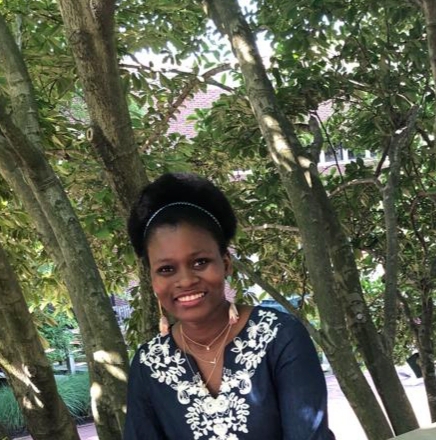By: Sabine Afodanyi, Knowledge Management Intern
 I began my internship with the African Women’s Development Fund with eagerness and desire to soak in as much knowledge as I can concerning African feminism. I had the opportunity of interning with the Knowledge Management department, which is responsible for archiving and analyzing feminist knowledge produced by the African Women’s Development Fund and its grantee organisations. As someone who is interested in development and advocacy work, I
I began my internship with the African Women’s Development Fund with eagerness and desire to soak in as much knowledge as I can concerning African feminism. I had the opportunity of interning with the Knowledge Management department, which is responsible for archiving and analyzing feminist knowledge produced by the African Women’s Development Fund and its grantee organisations. As someone who is interested in development and advocacy work, I
believe this internship gave me the opportunity to learn what it entails to accomplish such type of work. My six-week internship, supervised by Knowledge Management Specialist Rita Nketiah was a thought-provoking, fulfilling and memorable experience. During this process, I was amazed by the critical work and impact that AWDF has and will continue to accomplish in the venture to support its grantee organisations in radically transforming the state of women’s rights
in the African continent.
The work of AWDF is quite fundamental in advancing the state of women’s rights in the African continent, as it is in a unique position of providing funds to various women’s organisations in order for them to actualise the principles of African feminism in their local communities. For example, NETRIGHT is involved in aiding rural women to reclaim knowledge concerning land rights in the northern region of Ghana. This is done through a knowledge
building initiative which allows for these rural women to adequately fight for their rights so they can be able to be in control of their own economic futures without having to rely on male figures within their households. Having the opportunity to craft stories around organisations such as NETRIGHT opened my eyes to what African feminism really entails. In my opinion, I believe a key mechanism through which African women can be empowered is for the actualisation of their true economic autonomy in addition to their social and political rights. Organisations such as NETRIGHT allow for African women’s empowerment in a system which has long allowed for their oppression from and dehumanized them as a result of colonialism and patriarchy. Seeing how the AWDF is working to further advance this goal allows me to further understand how these systems have held African women back from truly actualising their personhood in political,
economic and social spheres.
Beyond obtaining the opportunity to gain knowledge about how a pan-African organisation such as the AWDF supports its grantees, I was also able to strengthen my writing abilities. A key aspect of my internship was being able to adequately and efficiently produce stories concerning important work grantees have been doing with support from the AWDF. Initially, I felt intimidated to write for a much larger audience beyond that of a classroom audience. This was my first opportunity in writing from the perspective of a women’s rights organisation with a large audience. With the support and guidance of my supervisor, I quickly overcame this uncertainty, allowing for me to confidently produce two key short profiles on AWDF grantees. For me, this is a testament to one of AWDF’s goals of supporting young African women in growing their voice and leadership capabilities. I also was able to build my ediorial skills by contributing to AWDF’s knowledge generation series Bread and Butter series, which offers radical feminist macroeconomic analysis to shape and transform policy. Having the opportunity to collaborate with my supervisor on this task was also another manner in which I was able to further enhance my knowledge of how African women are leading the way in transformational approaches to macroeconomic policies. Apart from enhancing my writing and editorial skills, I subsequently had the opportunity to support with the weekly operations of the Resource Centre. The Centre houses hundreds of materials on African feminist knowledge including books, films and institutional reports. As a support staff, I had the opportunity to meet with members of the public who visited the Centre to access materials or needed a quiet study space away from the noisiness of Accra. As a KM intern, I also contributed to researching and
uploading content to AWDF’s online repository called AfriREP. This process allowed me to engage with key African feminist knowledge producers, through open source platforms.
In summary, my internship experience with the AWDF is one which I believe will positively impact my educational career and beyond. There were many thought provoking questions, such as the role of social class in African feminism, and how this impacts the lives of everyday African women. While I was not able to visit some of the local organisations supported by AWDF, I am amazed by the important work the AWDF is doing with its revolutionary take on confronting injustices committed against African women through systems rooted in patriarchy and colonialism.
